Anti-Inflammatory Eating
If you’re one of the millions who suffer from arthritis, you know how painful and frustrating it can be to live with this condition. According to the World Health Organization, about 528 million people worldwide live with osteoarthritis, and 73% are over 55.1 Further, about 18 million people worldwide live with rheumatoid arthritis, and about 55% of these people are over the age of 55.
Arthritis is a tricky condition. It doesn’t just hurt your joints, but it also causes inflammation (swelling) all over your body, which can make you feel not so great.
Luckily, there are natural ways to make arthritis symptoms better. One way is eating the right foods that don’t cause inflammation.
This article will guide you on what anti-inflammatory foods to eat and which ones to stay away from if you have arthritis. Eating suggested foods may help you deal with arthritis by reducing pain and inflammation. It can also make your joints work better and improve your overall health and happiness.
What Is Arthritis?
Arthritis is a general term that refers to a group of conditions that affect joints and surrounding tissues.
There are over 100 types of arthritis, with the most common types being:
- Osteoarthritis
- Rheumatoid arthritis
- Gout
- Psoriatic arthritis
Symptoms of arthritis3 vary depending on the type but commonly include:
- Pain
- Swelling
- Stiffness
- Weakness
- Loss of function
- Joint deformity
- Joint instability
Arthritis can make it hard to do daily activities, especially if it affects your arms or hands.
Arthritis that affects your weight-bearing joints can make it challenging to sit up straight or walk comfortably. In severe cases,4 the affected joints may lose their normal shape and alignment.
The Role of Inflammation in Arthritis
Inflammation is a natural immune response to injury, infection, or foreign substances.
Inflammation works to guard and heal the hurt area. It does this by making more blood flow there and sending white blood cells and special chemicals called chemical mediators.
However, not all inflammation is the same. There are two main types of inflammation5:
- Acute – is usually short-term and resolves within a few days. Acute inflammation is characterized by warmth, redness, swelling, and pain in the affected area.
- Chronic – is long-term and can persist for months to years. It occurs when the immune system doesn’t eliminate the cause of inflammation or if it becomes overactive and attacks healthy body tissue. Chronic inflammation is associated with various chronic diseases, including arthritis, heart disease, diabetes, and cancer.
Sometimes, inflammation can help fix joint injuries or infections. It does this by cleaning up the damaged parts and helping to grow new, healthy tissue (tissue regeneration).
In some cases, inflammation can help to heal joint injuries or infections by removing debris and stimulating tissue regeneration.
On the other hand, inflammation can damage the joints of your body6 by eroding cartilage, bone, tendons, or ligaments.
The Best Foods For Relieving Arthritis in Your Joints
An anti-inflammatory diet can help manage your arthritis symptoms and improve your health. But what foods help arthritis go away?
Below, we share some of the best foods for arthritis and inflammation.
Fruits and Vegetables
- Berries, including blueberries, blackberries, strawberries, raspberries, cranberries, and boysenberries, as well as apples, are all rich in antioxidants and can fight arthritis inflammation.7
- Pomegranates are rich in tannins, which help decrease inflammation.7
- Cauliflower, Brussels sprouts, mushrooms, and broccoli are packed with antioxidants, vitamins, minerals, and fiber and provide anti-inflammatory benefits.7
You can also eat lots of different colorful fruits and veggies. Foods like dark green leaves, sweet potatoes, tomatoes, oranges, and beets are good. They all have different nutrients that can help your body fight off inflammation.
Fish and Lean Meat
- Omega-3-rich fish options, including salmon, sardines, tuna, and mackerel, help decrease inflammation.
Legumes and Nuts
- Protein-rich plant options, including nuts and seeds, lentils, beans, and peas, are low in saturated fats and cholesterol. Replacing meat with protein-rich plant options helps to minimize inflammation.7
Grains and Cereals
Beverages
- Tea,9 including green, black, and white tea, is rich in polyphenols, which have anti-inflammatory effects.
- Juices,9 including orange, tomato, pineapple, and carrot juice, are rich in vitamin C, which helps to neutralize free radicals that contribute to inflammation. However, if you opt for juice, drink it in moderation, as most juices are high in sugar and calories.
- Smoothies9 packed with colorful fruits and vegetables are high in antioxidants and help to decrease inflammation. Smoothies may be preferred over juices because they contain whole fruit or vegetables, giving you extra fiber and containing no added sugars.
Eating some of the best foods for arthritis can help lower inflammation in your body. It can help you manage your arthritis symptoms better.
Foods to Avoid: Triggers and Inflammatory Foods
Some foods can trigger or worsen inflammation, leading to more joint pain, stiffness, and decreased mobility.
What foods worsen arthritis? Below, we’ll outline what foods trigger arthritis and worsen inflammation.
Sugars and Sweets
- When you think about what foods worsen arthritis, sugars and sweets should be at the top of your list.
- Research tells us that eating too much sugar can cause problems with how our body uses food for energy. It can also increase chemicals like cytokines that cause inflammation. This can lead to insulin resistance and low-grade chronic inflammation.10 In simple words, sugars and sweet things can cause more swelling and make arthritis symptoms worse.
Processed Foods
- Another thing to watch out for if you’re trying to figure out what foods make arthritis worse are additives and preservatives in processed foods.
- Processed food contains additives like monosodium glutamate (MSG), salt, and aspartame.11 These additives preserve food and improve taste but increase inflammation.
Alcohol and Caffeine
- While you may find having an alcoholic drink or cup of coffee relaxing, you should drink them in moderation.
- Research says that coffee has antioxidants called polyphenols. These help protect your body from damage by free radicals. But, there might be a connection between drinking coffee and a higher chance of getting rheumatoid arthritis. However, further research is needed to support this claim. In general, limit coffee consumption to a max of 2 cups per day9 if you have arthritis.
- Some studies say that red wine has resveratrol, which can help reduce inflammation. Other studies found that moderate drinking might lower the risk of rheumatoid arthritis. But, many scientists are not sure how strong these studies are. To make things more complicated, other research says that drinking alcohol9 can be bad for arthritis. If you drink, it’s best to do it in small amounts to avoid making arthritis symptoms worse.
Avoiding foods that cause inflammation or worsen arthritis symptoms can help you control your arthritis. It can also make your overall health and happiness better.
Creating a Balanced Anti-Inflammatory Diet Plan
If you’re new to meal planning, here are some tips for success:
- Use an online meal planner – these planners can save and organize your recipes, generate your shopping list, and track your nutrition.
- Keep it simple – there’s no need to cook elaborate dishes every night; opt for simple, nutritious meals.
- Choose a variety of foods – including foods from different groups ensures that you’re eating a healthy, balanced diet.
- Shop the sales – go through your local grocery store flyers and plan your meals around what’s on sale. This will help to save you money and also reduce food waste.
- Plan for leftovers – cook enough food so that you have leftovers for another meal. You can use your leftovers as is or make them into a new dish by adding a few extra ingredients.
- Batch cook and freeze – if you have some extra time during the week, prepare your meals and freeze them for a later time. This will ensure you have something nutritious to eat when you’re busy or don’t feel like cooking.
- Organize – organizing your fridge and pantry can help make meal preparation easier and more efficient.
- Have fun – there’s no need for meal planning to be stressful. Keep it fun by trying new recipes, getting a helping hand from family or friends, and listening to music while you cook.
Portion control12 is another important part of a healthy diet. It can help you avoid overeating, which can lead to weight gain and inflammation.
Tips to control your portions include
- Use smaller plates, bowls, cups, and utensils.
- As a general rule – fill half of your plate with vegetables, a quarter with good-quality protein, and a quarter with complex carbohydrates.
- When eating out, ask for half a portion or take half of your meal home to eat later.
- Be cautious of serving sizes, read nutrition labels, and measure single servings.
- Eat slowly – chew your food well and enjoy each bite.
When planning an anti-inflammatory diet, consider any medications or supplements you’re taking. In some cases, certain foods may interact with medications or supplements,13 leading to harmful side effects. If you’re taking any medications, speak to your health professional before drastically changing your diet.
Frequently Asked Questions
- Is it possible to completely cure arthritis through diet? No, it’s not possible to cure arthritis through diet. But an anti-inflammatory diet can help you manage your condition and improve your quality of life.
- How long will it take to notice improvements? The effects of changing to an anti-inflammatory diet can vary among individuals depending on the type and severity of inflammation. It may take several weeks to months to notice an improvement in your symptoms.
- Are supplements a good substitute for natural foods? No, supplements are not a good substitute for natural foods. Supplements are intended to supplement your diet, not replace it. Natural foods are whole foods that contain various nutrients that work together to support health and well-being.
Takeaway
Arthritis is a chronic condition that causes joint pain, stiffness, and inflammation. There is currently no cure for arthritis, but effective ways to manage symptoms exist.
One of the easiest and most natural ways to do this is following an anti-inflammatory diet. An anti-inflammatory diet provides antioxidants, omega-3 fatty acids, fiber, and various other nutrients that help reduce inflammation in your body and help manage arthritis symptoms.
With some planning and preparation, you can enjoy nutritious meals that help to nourish your body and reduce inflammation.


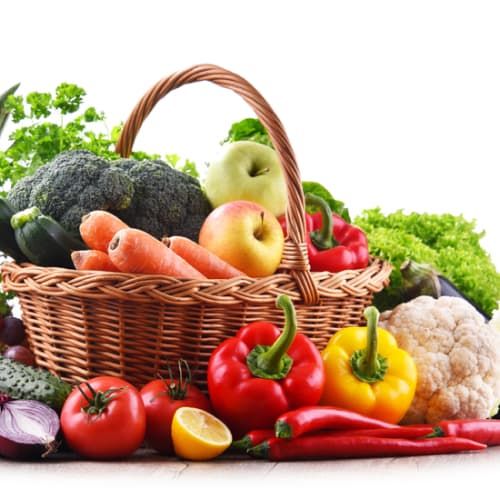
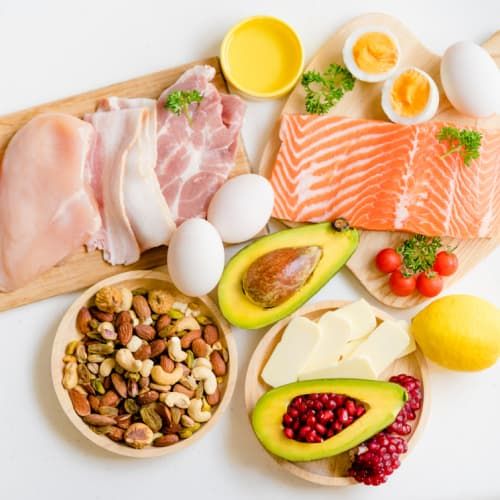
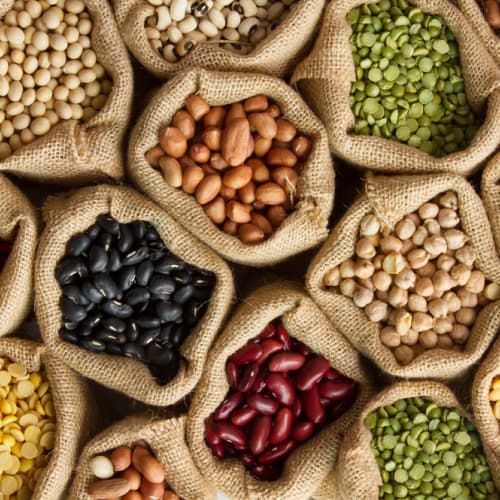
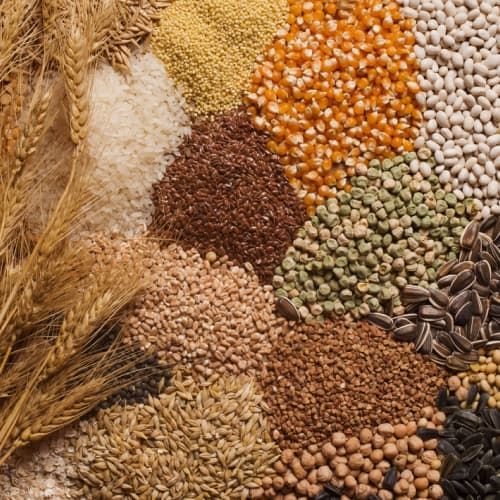


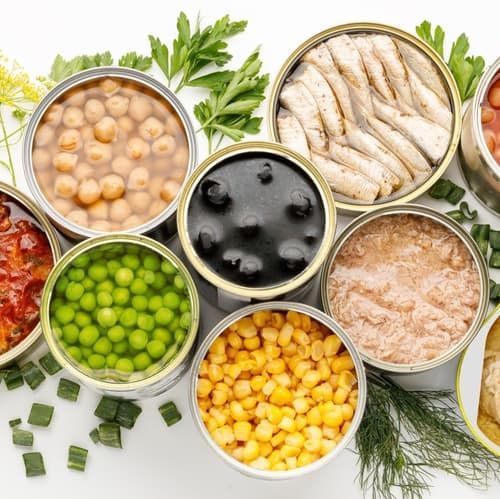









There are no comments yet